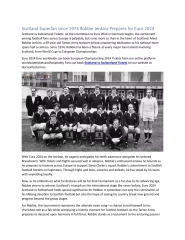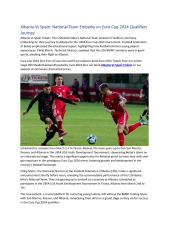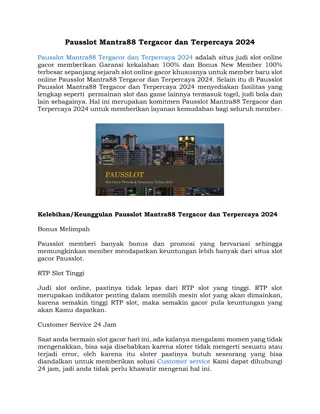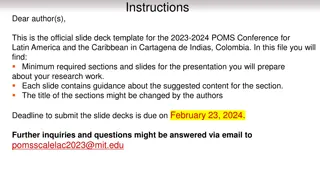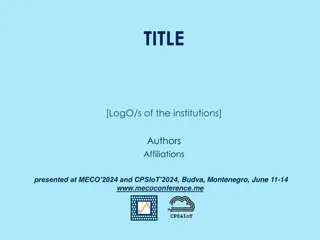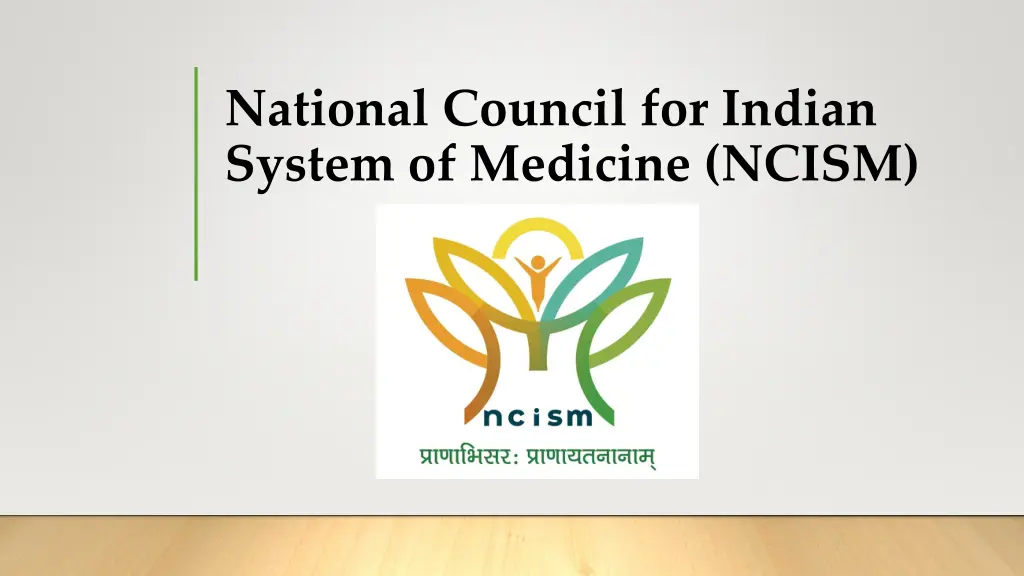
Council for Indian System of Medicine - Overview and Systems Explained
"Learn about the National Council for Indian System of Medicine (NCISM) and the various traditional systems including Ayurveda, Siddha, and Unani. Discover the origins, practices, and significance of these ancient healing methods."
Download Presentation

Please find below an Image/Link to download the presentation.
The content on the website is provided AS IS for your information and personal use only. It may not be sold, licensed, or shared on other websites without obtaining consent from the author. If you encounter any issues during the download, it is possible that the publisher has removed the file from their server.
You are allowed to download the files provided on this website for personal or commercial use, subject to the condition that they are used lawfully. All files are the property of their respective owners.
The content on the website is provided AS IS for your information and personal use only. It may not be sold, licensed, or shared on other websites without obtaining consent from the author.
E N D
Presentation Transcript
National Council for Indian System of Medicine (NCISM)
Introduction The Central Council of Indian Medicine (CCIM) is a statutory body under the Ministry of AYUSH, Government of India. It was established in 1970 under the Indian Medicine Central Council Act to oversee the education and practice of Indian systems of medicine, which include Ayurveda, Siddha, Unani, and Sowa Rigpa. However, as of April 2021, CCIM has been replaced by the National Commission for Indian System of Medicine (NCISM), which was established under the National Commission for Indian System of Medicine Act, 2020.
Under the provisions of section 59 (2) of NCISM Act 2020 the Central Government has constituted the Commission and four Autonomous boards. Medical standards, requirements and other provisions of the IMCC Act 1970 and the rules and regulations made thereunder shall continue to be in force and operate till new standards or requirements as specified under new act or rules and regulations made thereunder come into force.
1) Ayurveda Ayurveda means "the science of life" (ayur means "life" and veda means "science" in Sanskrit). Ayurveda is a discipline of the upaveda or "auxiliary knowledge" in Vedic tradition.Ayurveda has its prime origin from Atharva-Veda and apart as a supplement of the Rig-Veda. Dhanvantari is worshipped as the God of Ayurveda. The aim of this system is to prevent illness heal the sick and preserve life. The Ayurveda has its origins from the India and extended its wings in various parts of the world. Ayurveda was taught in Gurukula system in ancient days, which is now been evolved in to under graduate & post graduate courses from Institutions.
2) Siddha "Siddhargal" or Siddhars were the premier scientists of ancient days. Siddhars, mainly from Southern India, in the state of Tamil Nadu laid the foundation for Siddha system of medicine. Siddhars were spiritual adepts who possessed the ashta siddhis. Agastyar or Agasthya, is believed to be the founding father of Siddha medicine. Eighteen Siddhars are considered to be important in the Siddha Medicine. Siddha medicine is claimed to revitalize and rejuvenate dysfunctional organs that cause the disease and to maintain the ratio of Dosha. Kayakarpam (special combination of medicine and life style) and Muppu (the universal Salt) are speciality of Siddha system of medicine.
3) Unani Unani-tibb or Unani Medicine also spelled Yunani Medicine (Arabic, Hindustani, Pashto and Persian) is a form of traditional medicine practiced in middle-east & south-Asian countries. It refers to a tradition of Graeco-Arabic medicine, which is based on the teachings of Greek physician Hippocrates and Roman physician Galen, and developed into an elaborate medical system in middle age era by Arabian and Persian physicians, such as Rhazes (al-Razi), Avicenna (Ibn Sena), Al-Zahrawi, and Ibn Nafis. Unani medicine first arrived in India around 12th or 13th century with establishment of Delhi Sultanate (1206 1527) and Islamic rule over North India and subsequently flourished under Mughal Empire. An outstanding physician and scholar of Unani Medicine, Hakim Ajmal Khan (1868 1927) championed the cause of the Unani system in India. The Unani System of Medicine is included in the Central Council of Indian Medicine as per IMCC, Act 1970.
4) Sowa Rigpa Sowa Rigpa is a centuries-old traditional medical system that employs a complex approach to diagnosis, incorporating techniques such as pulse analysis and urinalysis, and utilizes behaviour and dietary modification, medicines composed of natural materials (e.g., herbs and minerals) and physical therapies to treat illness. The Four Tantras (Gyushi, rGyu-bzhi) are native Tibetan texts incorporating Indian, Chinese and Greco-Arab medical systems. The Four Tantras is the common name for the text of the Secret Tantra Instruction on the Eight Branches, the Immortality Elixir essence. The four Tantras are as follows, Root Tantra - Exegetical Tantra - Instructional Tantra - Subsequent Tantra Although there is clear written instruction in the Four Tantra, the oral transmission of medical knowledge still remained a strong element in Tibetan Medicine. The Sowa Rigpa System of Medicine is included in the Central Council of Indian Medicine from the year 2012 as per Gazette Notification No. 2345 dated 16.12.2011.
Mission and Vision The Aims and objectives of the National Commission for Indian System of Medicine are to- Improve access to quality and affordable Ayurveda, Unani, Siddha and Sowa-Rigpa (AUS&SR) medical education Ensure availability of adequate and high quality AUS&SR medical professionals in all parts of the country Promote equitable and universal healthcare that encourages community health perspective and makes services of AUS&SR medical professionals accessible to all the citizens;
Cont.. Encourage medical professionals to adopt latest medical research in their work and to contribute to research Objectively assess and rate medical institutions periodically in a transparent manner Maintain a National AUS&SR medical register for India Enforce high ethical standards in all aspects of AUS&SR medical services; Have an effective grievance redressal mechanism.
Structure of NCISM The CCIM s structure consisted of the following main parts: 1. President and Vice-President: Each system of medicine under CCIM had its President and Vice-President, representing Ayurveda, Siddha, Unani, and Sowa Rigpa. 2. Council Members: The council comprised members nominated by the central government, state governments, and universities or educational institutions recognized by CCIM. Members included representatives from: 1. Registered practitioners of Ayurveda, Siddha, and Unani 2. Universities offering degrees in these fields 3. Central and state government nominees 3. Executive Committee: This committee was responsible for handling administrative and executive functions and consisted of a chairperson and members elected from the council.
4. Education Committee: This committee reviewed and regulated the educational standards for AYUSH systems of medicine and advised the council on curriculum development, training programs, and institutions' accreditation. 5. Other Committees: Specialized committees were formed for various purposes, such as ethics, registration of practitioners, and assessment of educational institutions. 6. Secretariat: The secretariat managed administrative tasks and supported the council in executing its duties.
Chairman Vaidya Jayant Deopujari Ex Chairman Boards of Governors, CCIM, Ministry of Ayush, Govt.of India, New Delhi
Commission board Dr. Sreenivasa Prasad Buduru The President of Board of Ayurveda Dr. K. Jagannathan The President of Board of Unani, Siddha and Sowa Dr. Raghurama Bhatta U The President of Medical Assessment and Rating Board for Indian System of Medicine Prof. (Vaidya) Rakesh Sharma The President of Board of Ethics and Registration for Indian System of Medicine Dr. Manoj Nesari Advisor (Ayurveda) (Equivalent to Joint Secretary, Government of India) Ministry of AYUSH Dr. M. A. Qasmi Advisor (Unani) or Joint Secretary to the Government of India incharge of Unani, in the Ministry of AYUSH
Dr. N. Zaheer Ahmad The Director General, Central Council for Research in Unani Medicine, New Delhi Prof. Tanuja Nesari Director, All India Institute of Ayurveda, Sarita Vihar, New Delhi. Prof. Rabinarayan Acharya The Director General, Central Council for Research in Ayurvedic Sciences, New Delhi Dr. N.J. Muthu Kumar The Director General, Central Council for Research in Siddha, Chennai Prof. R. Meena Kumari The Director, National Institute of Siddha, Chennai Dr. Abdul Wudud The Director, National Institute of Unani, Bengaluru Dr. Neeta Mahesekar, Ph.D The Director, North Eastern Institute on Ayurveda and Homoeopathy, Shillong Prof. Anup B. Thakar The Director, Institute of Teaching and Research in Ayurveda, Jamnagar
Prof. Sanjeev Sharma The Director/ViceChancellor, National Institute of Ayurveda, Jaipur Sh. Bishnu Prasad Sarm The Principal (Retd.) Govt. Ayurveda College, Guwahati, Assam Dr. Suryakiran P. Wagh The Professor Yashwant Ayurveda College, Kodoli, Maharashtra Vd. P. Rammanohar Research Director, Amrita School of Ayurveda, Kerala
Functions of NCISM Policy framing: The NCISM creates policies for regulating medical professionals and institutions that practice the Indian System of Medicine. Assessing requirements: The NCISM assesses the needs of the healthcare infrastructure and human resources. Ensuring compliance: The NCISM ensures that State Medical Councils of Indian System of Medicine adhere to the regulations made under the Bill. Research: The NCISM encourages medical professionals to use the latest medical research.
Medical institutions: The NCISM periodically and transparently assesses medical institutions. Medical register: The NCISM maintains a medical register of the Indian System of Medicine. Ethical standards: The NCISM enforces high ethical standards in all aspects of medical services. Grievance redressal: The NCISM has an effective grievance redressal mechanism.
General regulations CCIM (Election of president and vice-president) Regulations, 1971 The Indian Medicine Central Council (Election) Rules, 1975 (Including Amendments of 2012) CCIM (GENERAL) Regulations, 1976 CCIM Inspectors CCIM (Central Register of Indian Medicine) (Amendment) Regulation, 1982 Practitioners of Indian Medicine ( Standards of Professional Conduct, Etiquette and Code of Ethics) Regulations, 1982 Indian Medicine Central Council ( Minimum Standards of Education in Indian Medicine) Amendments Regulations, 2019
Practitioners of Indian Medicine (Standards of Professional Conduct, Etiquette and Code of Ethics) Regulations, 1982
Declaration Every practitioner of Indian Medicine shall, within a period of 30 days from the date of commencement of these regulations, and every practitioner of Indian medicine who gets himself registered after the commencement of these regulations shall, within a period of 30 days from such registration, make before the Registrar of the State Council or the Board, a declaration in Form A and shall agree to abide by the same.
Code of Conduct towards Patients and Public 1) Character of the Practitioners of Indian Medicine The main object of the medical profession is to render service to humanity. A practitioner of Indian medicine shall be an upright man, instructed in the art and science of healing. He shall keep himself pure in character and be diligent in caring for the sick. He shall be modest, sober, patient, prompt to do his duty without anxiety and, pious in all the actions of his life
Duties of practitioners of Indian medicine towards their patients. A practitioner of Indian medicine shall be ready to respond to the calls of the patients in emergencies for the sake of humanity and the noble traditions of the profession, though he is not bound, to treat each and every one asking his services. He shall not permit, considerations of religion, nationality, race, caste, creed, party politics or social standing to intervene in his duties towards patients.
Practitioner's responsibilityA practitioner shall merit the confidence of patients entrusted to his care, rendering to each a full measure of service and devotion and shall try continuously to improve his knowledge and skill. Patience, delicacy and secrecy Patience and delicacy shall characterise the practitioner of Indian medicine. Confidence concerning individuals or domestic life entrusted by patients to a practitioner and defects in the disposition or character of patients observed during medical attendance shall never be revealed unless their revelation is required by law.
Prognosis. A practitioner shall neither exaggerate nor minimise the gravity of a patient's condition and shall assure himself that the patients, his relatives or his responsible friends have such knowledge of the patient's condition as will serve the best interests of the patient and the family. The patient must not be neglected A practitioner shall be free to choose whom he will serve. Once having undertaken a case, the practitioner shall not neglect the patient, nor shall he withdraw from the case without giving notice to the patient, his relatives or his responsible friends sufficiently in advance to allow them to secure another medical attendant.
Upholding the honour of the professionA practitioner of Indian medicine shall uphold the dignity and honour of his profession. Engagement for an obstetric case If a practitioner of Indian medicine agrees to attend a women during her confinement, he must do so. Inability to do so on an excuse of any other engagement is not tenable except when he is already engaged on a similar or other serious case and another practitioner is sent for previous case.
Practitioner as a CitizenA practitioner as a good citizen, possessed of special training, shall advise concerning the health of the community wherein he dwells. Public Health At all times, the practitioner shall notify the constituted public health authorities of every case of communicable disease under his care, in accordance with the laws, rules and regulations of the health authorities. When an epidemic prevails, he shall continue his labour without regard to the risk of his own health.
Duty of One Practitioner Towards Another Practitioner Dependence of practitioners on each other There is no rule that a practitioner of Indian medicine shall not charge another practitioner for his services, but a practitioner shall cheerfully and without recompense give his professional services to another practitioner or his dependents if they are in the vicinity. Compensation for expenses A practitioner of Indian medicine shall consider it a privilege to render gratuitous service to all practitioners and their immediate family dependents. When he is called from a distance to attend or advise another practitioner or his dependents, reimbursement shall be made to him for travelling and other incidental expenses.
Consultation to be encouragedIn case of serious illness, especially in doubtful or difficult conditions, a practitioner may request consultation. Consultation for patients benefit. In every consultation, the benefit to the patient is of first importance. Punctuality in consultation Utmost punctuality shall be observed by a practitioner of Indian medicine in meeting for consultation. Conduct in consultation In consultations, no insincerity, rivalry or envy shall be indulged in.
Treatment after consultation.No decision shall restrain the attending practitioner of Indian medicine from making such subsequent variations in the treatment as any unexpected changes may require, but at the next consultation, reasons for the variations shall be stated. The attending practitioner may prescribe at any time for the patient, the consultant only in case of emergency. Visiting another practitioner's cases. A practitioner called to visit a patient who has recently been under the care of another practitioner in the same illness, shall not take charge of, nor prescribe for such patient, except in a case of emergency when he shall communicate to the former explaining the circumstances under which the patient was seen and treatment given, or when the practitioner has relinquished his case, or when the patient has notified such practitioner to discontinue his services or unless the patient specifically refuses to go back to his original practitioner.
Patient referred to specialistsWhen a patient is referred to a specialist by the attending practitioner, a statement of the case shall be given to the specialist who shall communicate his opinion in writing in a closed cover direct to the attending practitioner.
CODE OF ETHICS Nomenclature of qualification It shall be compulsory for a practitioner of Indian medicine to affix the correct degree or diploma before or after his name. Change of address and announcement relating thereto A notice of change of address shall be intimated by every practitioner to the concerned State Council and the Control Council. A practitioner may issue a formal announcement in the Press one-insertion in one or more papers, regarding the following : (a) On starting practice; (b) On change of type of practice; (c) On change of address; (d) On temporary absence from duty; (e) On resumption of practice; (f) On succeeding to another practice
Payment for professional servicesA practitioner shall not enter into a contract of "No cure, no payment". Rebates and commission A practitioner shall not give, solicit, or receive nor shall he offer to give, solicit or receive, any gift, gratuity, commission or bonus in consideration of or in return for the referring, recommending or procuring of any patient for medical, surgical or other treatment. Evasion of legal restriction A practitioner shall observe the laws of the country in regulating the practice of medicine and shall not assist others to evade such laws.
Professional certificates, reports and other documents A registered practitioner is, in certain cases, bound by law to give or may be called upon or requested from time to time to give certificate, notifications, reports or similar documents signed by him in his professional capacity for subsequent use in the course of justice or for administrative purposes. Register of medical certificate issued by practitioner A practitioner shall maintain a register of medical certificates giving full details of the certificates issued. When issuing a medical certificate, he shall always enter the identification marks of the patient and keep a copy of the certificate.










